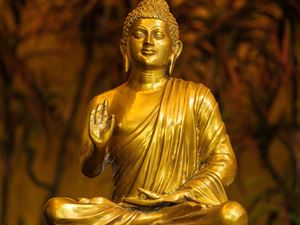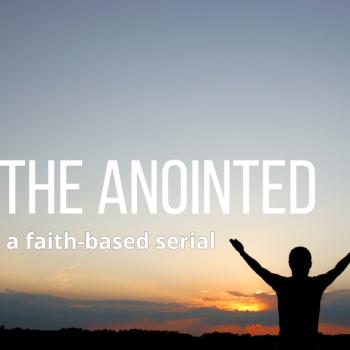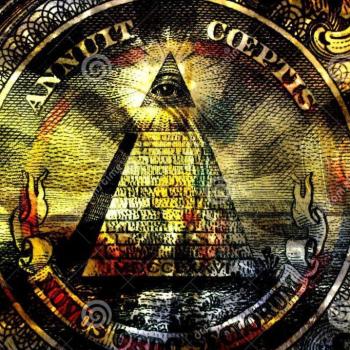
What is Vesak or Buddha Day?
Vesak Day is a celebration of the birthday of Siddhartha Gautama (or Gautama Buddha)—the original “Buddha” (or “awakened one”). For some Buddhists, this holiday—alternately referred to as Wesak Day, Buddha Purnima, Buddha Jayanti, or Buddha Day—also marks the occasion of the Buddha’s achieved of enlightenment, as he sat under the bodhi or fig tree. Many, on this holiday, commemorate the passing of the Buddha as well. This is one of the most important holidays in Buddhism, celebrated by Buddhists worldwide, as it centers around one of Buddhism’s most important and holy figures.
When was Buddha born?
The date of Siddhartha Gautama’s birth is somewhat contested, with sources approximating various dates—including 623 BCE, 563 BCE, and even as late as 480 BCE. However, most historians believe that the 6th century BCE is, in all probability, the century in which he was born. While April 8th (of the Gregorian calendar) is the traditional date given for his birth, that date is nothing more than tradition—and the actual day and month in which he was born is simply unknown.
We do know he was born into an aristocratic family in India, apparently in Lumbini, or present-day Nepal. His father was said to be the king of the Sakya people. It is believed that he was reared in a place known as Kapilavastu, though the exact location of that ancient city is unknown today. Because it was the capital or headquarters of the Shakya clan, Siddhartha is sometimes referred to as “Shakyamuni”—meaning the “sage of the Shakyas.”
This holiday’s focus is less on the actual year or day of the month on which Siddhartha entered mortality; facts which are simply not known. Rather, its emphasis is on the significance of what was made available through that sacred birth (in a park in Lumbini); namely the potential enlightenment of all sentient beings (through choosing to follow the path to enlightenment laid out by the Buddha).
How is Vesak Celebrated?
There are a variety of ways in which this holiday is celebrated, contingent upon one’s denomination of Buddhism, and based on what country in which one commemorates the holiday. Partitioners will commonly flock to the local temple prior to dawn, therein engaging in rituals, such as bathing a statue of the Buddha, hoisting the Buddhist flag, decorating the temple with flowers, making offerings, and listening to monks chant the sacred hymns of the “Three Jewels,” “Three Refuges” or “Triple Gem”—i.e., The Buddha, The Dharma (i.e., Buddha’s teachings), and The Sangha (his disciples, lay and monastic).
On this holiday, many seek to evidence their commitment to follow the Buddha’s path by manifesting peace, harmony, and love through the accomplishment of deeds which might be perceived as auspicious or noble. Contributions to charity are common, giving gifts to friends and loved ones, donating food to the needy or to monastics, spending time in meditation, or engaging in some act of significant service—these, and other such acts, are common ways to commemorate this holiday and honor the life of the Buddha. Vesak is a time to seek to bring others happiness—particularly those whose life circumstances make day-to-day comforts less likely… the poor, the sick, the lonely, the elderly, etc. Thus, on this day, one focuses less on their own needs, wants or comforts and, instead, on those around them who may be less fortunate or who may suffer significantly.
In addition to decorating the local temple, some Buddhists will also decorate their homes with lanterns, don white clothing (to evidence their observance of the sacred festival), spend the whole day and evening in the temple, and participate in processions in honor of the Buddha.
What Are Some Important Symbols of Vesak?
The pouring of water over a statue of Siddhartha reminds practicing Buddhists of their need to cleans their minds and hearts of thoughts which are harmful, or which prevent enlightenment—such as violent, hateful, greedy or lustful thoughts. As noted, it is common for practitioners of Buddhism to bring offerings to the temple on Vesak; simple offerings, like flowers, incense sticks, or candles. These offerings symbolically remind all who see them that all earthly things are temporary; none last, all fade away. Flowers whither, incense and candles burn out. And so it is with our lives and all of our possessions. Thus, the purposeful life, the enlightened life, must be free of attachment to such fleeting things.
What can be Eaten on Vesak Day?
While not required of practitioners, many Buddhist will only eat vegetarian dishes on this holiday. Buddhism teaches ahimsa—or “non-violence.” Thus, the taking of the life of any living being, including animals and insects, is frowned upon, particularly on this holiday. Sri Lanka, and some other nations, mark this holiday with a two-day window in which slaughterhouses and butcher shops are required by the government to be closed, in commemoration of the Buddha’s peace-filled, pacifistic life.
Why is Vesak Day Celebrated on Different Days?
Because the month of Vaisakha (in the Indian Hindu calendar) is the month in which this holiday traditionally falls, the festival’s name—“Vesak”—is taken from the month’s name.
Vesak Day is typically commemorated in April or May though, during leap years, it may come as late as the month of June. There are two factors which play into when this important holiday is celebrated.
First, the dating of Vesak is traditionally established through the Asian lunisolar calendar. Thus, in many locations, the holiday is not celebrated each year on a fixed date but, instead, during an approximate time of the year—typically April/May of the Gregorian calendar. In some countries, it is celebrated on the day of the full moon of the month of Vaisakha (in the Hindu calendar). In other countries, its commemoration is held on the day of the first full moon in May (of the Gregorian calendar). In Bhutan, the holiday is observed on the 15th day of the fourth month of the Bhutanese lunar calendar. In Indonesia, Vesak is marked on the fourteenth or fifteenth day of the fourth month in the Chinese lunar calendar, and so forth. As a singular example, in 2020, in Thailand, Myanmar, and Cambodia, Vesak was commemorated on May 6. In that same year, in Singapore, Sri Lanka, Nepal, Bangladesh, India, Malaysia and Vietnam, it fell on May 7. In China, in 2020, Vesak was commemorated on April 30. And in Bhutan, Buddha’s birthday was celebrated June 5, 2020.
A second reason that this holiday appears to not always be celebrated at the same time throughout the world is that some Buddhists make their Vesak focus just Siddhartha’s birth, while others also commemorate his achievement of enlightenment and his death on this same occasion. (In some Buddhist traditions, all three events happened on the same date.) In parts of East Asia, therefore, Buddha’s enlightenment and death are observed as separate holidays; whereas, in Southern and Southeastern Asia, his birth, enlightenment and death are all combined into one celebration. Thus, there is sometimes the appearance of a singular commemoration of these three sacred events and, in other parts of the world, multiple dates on which certain of these holy days are honored.
How Might one Summarize the Message of Vesak Day?
Tradition has it that Siddhartha was born into the ideal life—a coveted situation. His family had wealth, station, respect, servants, and all one could hopeful, but few in morality get to receive or enjoy. However, it is said that he gave up all of this in an effort to gain enlightenment and, upon that enlightenment, he spent the next 40-years seeking to help others discover what he had found; namely, the path that leads to the extinction of suffering. If nothing else is drawn from this most important of Buddhist holidays, we might say this: Vesak Day, or Buddha Day, is a time to self-analyze the degree to which one’s life, heart, desires and path mirror those set out by the Buddha—and to make needed adjustments accordingly, through service, sacrifice, loving and living as the Buddha taught we all should.
3/14/2023 4:09:23 PM










